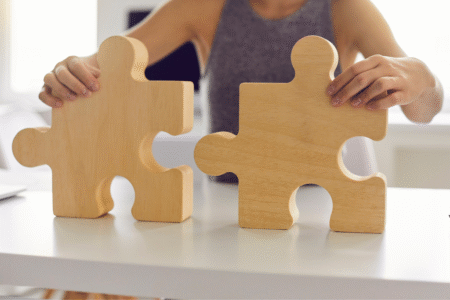What are the benefits of coaching?
If you do what you have always done, you will get what you always got.
Coaching should ultimately renew and energise you. Your coach will be an objective eye to challenge you and help you discover your brilliance. Depending on the issue you want to resolve, coaching will help you form a way forward while establishing your goals and support system. Your insights and understanding will be translated into tangible and applicable actions or behavioural changes.
How is coaching different from therapy and other similar professions?
Unlike therapy, coaching is future focused. In coaching we are concerned with what you are going to do going forward; therapy tends to look at the past and focus on healing.
Unlike mentoring, coaching allows the individual to find his or her resources and solutions. Mentoring tends to be from someone more experienced in a certain area who can give specific directive advice.
Unlike consulting, coaching assumes the individual or teams are capable of finding their own solutions with the coach providing supportive approaches for discovery. Consultants are often hired or retained by organisations for their specific expertise. In general, a consultant will diagnose a problem and prescribe or deliver solutions.
What can I expect from the coaching process?
The role of the coach is to provide objective observations and to challenge the client to think beyond their immediate and habitual patterns for dealing with current circumstances. A coaching relationship should be positive and enjoyable, even fun, as you discover your unique brilliance and empower yourself with it.

Typically the coaching relationship will start with a brief phone call to discuss the issue and what the client is looking for. If the client wants to then proceed with the coaching relationship, they will agree a time to meet. The coach then usually will send a confirmation and terms of agreement.
For corporate clients, the first meeting is with the coach, coachee and sponsor to make sure all are on the same page with regard to the relationship and each party’s responsibility. Most critically, there will be clarity to the nature of confidentiality and how and when to update the sponsor while still respecting the individual’s confidentiality.
For individuals, the first meeting will be time to build rapport and explore the client’s objectives. It is not always the case that the client has a clear and specific agenda. Often the first sessions are spent helping to understand and identify what the client really wants.
The coaching relationship can be a one-off session but typically runs for at least six sessions with roughly three weeks between sessions. During these sessions the coach will check back in with the objectives to ensure the client is on track and making progress. It is not unusual for goals to change over the coaching period.
Most importantly, the coaching relationship should be a positive and enjoyable experience. If you have any concerns please be open and up front with your coach. We became coaches because we enjoy providing the best and most productive experience for our clients.
What is the role of emotional intelligence in coaching?
Emotional intelligence plays a central role in effective coaching by bridging the gap between personal growth and professional development. Defined by Mental Health America as “the ability to manage both your own emotions and understand the emotions of people around you,” emotional intelligence includes five key elements: self-awareness, self-regulation, motivation, empathy, and social skills.
In coaching, emotional intelligence is not just a topic – it’s a foundational skill set that influences how someone shows up in every area of their lives. Professionally, it enhances leadership, communication, teamwork, and decision-making. In personal life, it supports emotional resilience, stronger relationships, and a deeper understanding of self and others.
While many coaches focus exclusively on either career growth or personal development, coaching with a focus on emotional intelligence forces us to take a more holistic approach. By addressing both simultaneously, clients often experience more lasting and meaningful change. Developing emotional intelligence creates a ripple effect: improvements in self-awareness and empathy, for example, not only help someone manage workplace dynamics but also improve how they relate to family, friends, and themselves.
Ultimately, the role of emotional intelligence in coaching is to help individuals grow into more grounded, capable, and emotionally attuned versions of themselves – improving every sphere of their lives.
How much will this cost?
Coaching is most effective when you make a commitment to at least six sessions over a 3-6 month period. This allows you and your coach to build a productive working relationship.
Coaching sessions are typically one hour for $240. Longer sessions are prorated.
Non-profit and education sector, and self-employed persons, please contact to enquire about concession rates.
We also provide the option to pre-purchase 10 sessions to be used within a 12 month period for $1600.
Training and facilitation programs are designed specific to the event and organization and billed according to the nature of the program and team requirements.
Contact us for more information.
